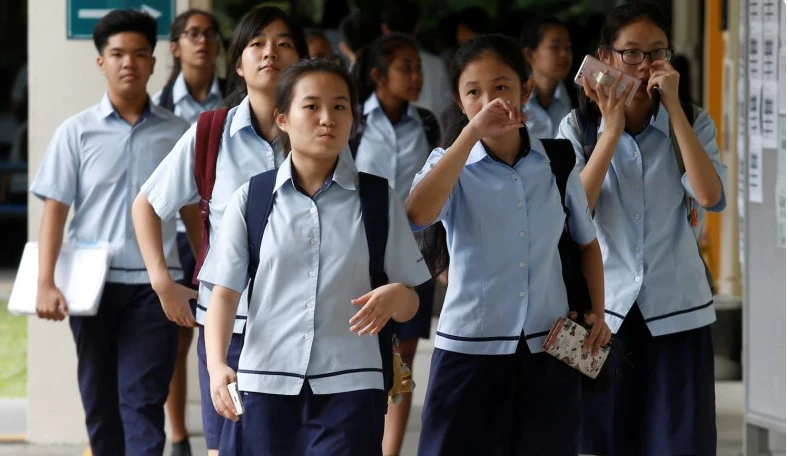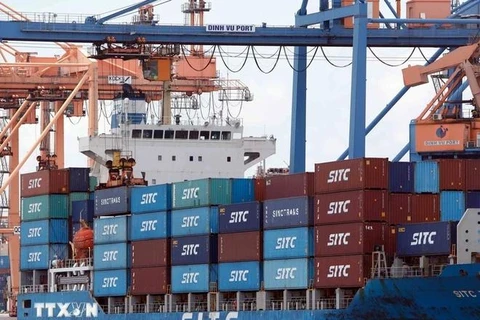
Hanoi (VNA) - At Lakeside Primary School in Singapore, a trolley full of laptops is wheeled to the door of a fifth grade classroom where 30 or so students rush out to a hallway to retrieve them to learn mathematics using artificial intelligence (AI) each week.
The teacher will write on a whiteboard that the lesson will focus on the conversion of measurements involving decimals.
Using their laptops, the students swiftly access an AI-enabled “Adaptive Learning System” (ALS) embedded in an online learning portal, developed by the Education Ministry for fifth- and sixth-grade mathematics.
The ALS, introduced in June last year, enables the students to choose their own difficulty from three levels, while the AI generates questions based on previous learning data and other factors.
Lovelle Ng Bo Yee, one of the fifth graders at Lakeside school, shared that she likes to use ALS because she can learn better with the system.
Cynthia Goh, the school’s mathematics head, said the students have the option to decide what they want to learn on a given day. They can make revisions, receive further guidance when uncertain, or take on a challenge, while the teacher observes the students and sometimes helps them.
The ALS collects data on each student’s mastery of a new topic and compiles a report on their performance. Teachers benefit as they can save time on grading, get data on students’ areas of weakness, enhance lesson content and provide more individualised instruction.
The use of AI in schools has become more and more widespread globally, but there are differences among countries in terms of readiness to embrace the technology.
In Asia, countries and regions such as the Republic of Korea and China announced plans in recent years to incorporate AI in their education systems.
Singapore’s Education Ministry adopted AI for the teaching of maths in public primary schools nationwide last year after a two-year pilot project involving 33 schools. The ministry is expanding AI to other subjects such as English language.
The promotion of AI in education, one of five national AI projects unveiled in 2019, came also as Singapore has been ranked among the top in international tests of the Programme for International Student Assessment (Pisa) conducted by the Organisation for Economic Cooperation and Development.
The results of the triennial tests last year taken by 15-year-old students showed that Singapore led in mathematics, reading and science among 81 economies./.






















